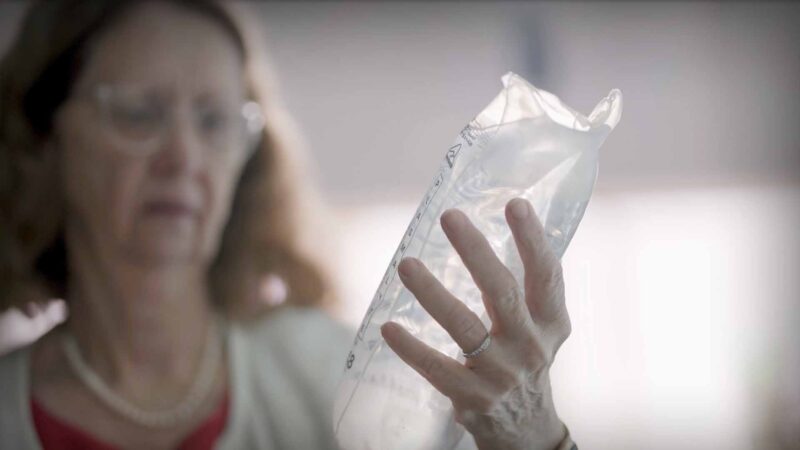OCULAR DISEASE AND EARLY ONSET MYOPIA
Dr Jessica Mountford
Brian King Fellow &
Head of Functional Molecular Vision Group
Lions Eye Institute, Western Australia
RESEARCHER PROFILE
Filmed in Perth, Western Australia | November 2024
Dr Jessica Mountford received her highly ranked PhD from Monash University, Melbourne, in 2012, in the field of biochemistry and clinical haematology. Her work investigating novel ways to prevent thrombosis, a leading cause of heart attack and stroke, led to a first author publication in Nature Communications.
Following this, Dr Mountford relocated to Perth and went on to complete two post-doctoral appointments at the University of Western Australia, where she began research on the comparative evolution of visual and non-visual opsin across species of vertebrate, from the primitive lamprey to human.
During this period Dr Mountford began researching novel genetic variants associated with myopia development. With Adjunct Research Fellow appointments held at La Trobe University in Melbourne, and the University of Western Australia, Dr Mountford is currently the 6th Brian King Fellow and the Head of the Functional Molecular Vision Group at the Lions Eye Institute in Perth where she researches both the genetic and environmental factors involved in the development of early-onset myopia.
Dr Mountford has successfully established Western Australia’s first and only ocular genetic screening platform using zebrafish and utilises this model to help elucidate some of the complex gene-environment interactions responsible for the development of myopia.
You Might also like
-
World-first clinical trial improves patient outcomes for kidney transplants (2023)
A world-first clinical trial conducted at the Royal Adelaide Hospital (RAH) and at hospitals across Australia and New Zealand has identified the best fluid treatment to reduce the risk of patients requiring dialysis after a kidney transplant.
Around one in three people who receive a kidney transplant suffer delayed graft function, which means the transplant doesn’t work immediately and they require dialysis.
The lead-author of the study, was Royal Adelaide Hospital Nephrologist and University of Adelaide researcher, Dr Michael Collins.
-
Respiratory health and the microbiome in the lung environment
Dr Taylor leads the Respiratory Health Group within the Microbiome and Host Health Program. His research employs tailored techniques that allow the lung environment to be characterised to a high level of accuracy, including detailed measurements of airway microbiology (microbiome), mucus composition, and inflammation. This information is used to identify predictive markers of chronic lung disease severity as well as determine effective forms of therapy.
-
Dr Zarina Greenberg
RESEARCH IN BRAIN COMPUTER INTERFACE
@ SYNCHRON
MELBOURNE, VICTORIA, AUSTRALIA



